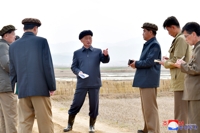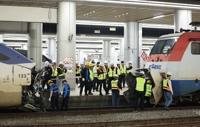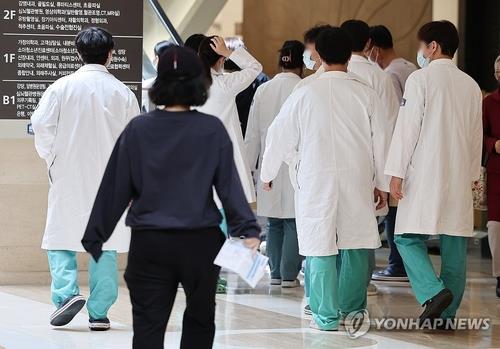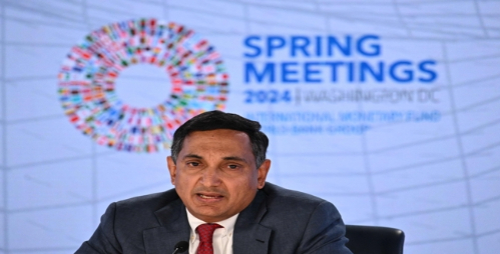(LEAD) N.K. nuclear capabilities would be much greater without 1994 nuclear freeze deal: ex-U.S. negotiator
(ATTN: ADDS details in paras 4, last 12 paras, background, byline)
By Chang Jae-soon
WASHINGTON, Oct. 20 (Yonhap) -- North Korea could have moved its nuclear capabilities more significantly forward to a point where it could produce dozens of nuclear bombs a year had Pyongyang not been stopped by a 1994 nuclear freeze deal, the then-U.S. negotiator said Monday.
Robert Gallucci, who negotiated the Agreed Framework deal with Pyongyang that defused the first North Korea nuclear crisis, made the case during a seminar commemorating the 20th anniversary of the landmark agreement that committed Pyongyang to suspending its nuclear activities.
Had it not been for the deal, the North could have used its main 5-megawatt reactor and two others under construction at the time -- 50 megawatts and 200 megawatts -- to produce some 200 kilograms of plutonium, worth about 40 bombs, a year.
"They do not have a huge arsenal of plutonium weapons, I would say, because of the Agreed Framework," he said.
Gallucci said the North also would now have a more advanced uranium program had it not been for the 1994 deal.
The deal, also known as the Geneva Agreement, committed North Korea to freezing and ultimately dismantling its nuclear program in exchange for two proliferation-resistant light water reactors for power generation, and the normalization of relations with the United States.
But the landmark agreement fell apart with the second nuclear crisis in late 2002, with revelations that Pyongyang had pursued a clandestine uranium enrichment program. The six-party talks were then launched in 2003 to defuse the crisis, but the standoff is still ongoing.
Participants in Monday's seminar, including former South Korean Foreign Minister Han Sung-joo and former U.S. Ambassador to Seoul Stephen Bosworth, talked about what happened before, during and after the deal was reached, including how close the Korean Peninsula situation was to another war.
Gary Luck, who served as commander of U.S. Forces Korea at the time, said the situation was serious.
"As a military guy, I was very concerned in being prepared and ready to do this thing if the command authority made that decision," he told the seminar by phone.
James Laney, then the U.S. ambassador to Seoul, also said that the situation on the peninsula was "pretty serious" and some American people in South Korea even "took their children out of school and left for early summer vacation."
After the second nuclear crisis broke out, six-party talks were launched in 2003 in an effort to resolve the problem. The forum, which brings together the U.S., North and South Korea, China, Japan and Russia, produced some agreements, but all of them later fell apart. The negotiations have been stalled since the last meeting in 2008.
The North has called for an unconditional resumption of the negotiations, but Washington and Seoul demand that Pyongyang take concrete steps demonstrating it is serious about giving up its nuclear program once negotiations resume.
Most of those involved in the 1994 deal called for resuming negotiations with Pyongyang.
"At the moment, the countries who led the effort of the Agreed Framework, the United States and South Korea, seem to ... have concluded that at least for foreseeable future, the best thing to do is nothing," Bosworth said. "I think some of us (here) are less than totally convinced that is in fact the best policy prescription for the U.S."
Bosworth said the alternative to dealing with North Korea would only be the North proceeding with its nuclear program and development of missiles. He stressed that the problem will get only worse as time goes by, and the cost of dealing with the problem in the future is going to be much higher.
"At some point, we're not going to be able to avoid this problem and it's going to be harder every year that goes by. It's going to be more difficult, politically and substantively, to deal with the North Koreans. It's not going to get easier," Bosworth said.
"I understand this administration chooses not to reengage with North Korea, buy that horse twice ... but I just think it's feckless public policy to somehow hope this problem is going to go away," he said.
Robert Einhorn, a former State Department special adviser for nonproliferation, also said that the U.S. should pursue even a limited deal, rather than completely disarming the North, if it is in the U.S. interest.
"I would say that if we can reliably cap their nuclear missile program and prevent North Korea from having a reliable missile capable of striking the United States ... then it's a good idea for us to cut that deal," he said.
jschang@yna.co.kr
(END)
-
 Defense chief says N. Korea's hypersonic missile 'unsuccessful' in last-stage glide flight
Defense chief says N. Korea's hypersonic missile 'unsuccessful' in last-stage glide flight -
 Overdue debut of Korean abstract art pioneer Yoo Young-kuk at Venice Biennale
Overdue debut of Korean abstract art pioneer Yoo Young-kuk at Venice Biennale -
 Relax, immerse yourself in scents at Venice Biennale's Korean Pavilion
Relax, immerse yourself in scents at Venice Biennale's Korean Pavilion -
 N. Korea has capability to genetically engineer biological military products: U.S. report
N. Korea has capability to genetically engineer biological military products: U.S. report -
 S. Korea marks 30th anniv. of Korean Pavilion at Venice Biennale with contemporary art
S. Korea marks 30th anniv. of Korean Pavilion at Venice Biennale with contemporary art
-
 Overdue debut of Korean abstract art pioneer Yoo Young-kuk at Venice Biennale
Overdue debut of Korean abstract art pioneer Yoo Young-kuk at Venice Biennale -
 Relax, immerse yourself in scents at Venice Biennale's Korean Pavilion
Relax, immerse yourself in scents at Venice Biennale's Korean Pavilion -
 Defense chief says N. Korea's hypersonic missile 'unsuccessful' in last-stage glide flight
Defense chief says N. Korea's hypersonic missile 'unsuccessful' in last-stage glide flight -
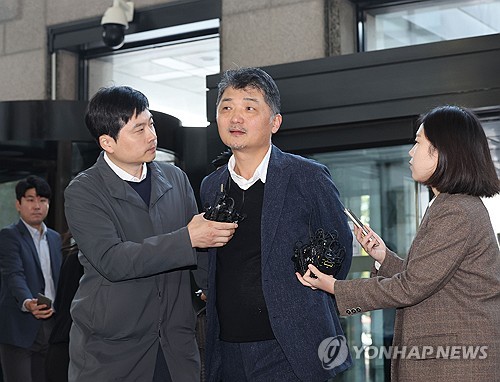 Questioning necessary for Kakao founder for suspected stock rigging: prosecution
Questioning necessary for Kakao founder for suspected stock rigging: prosecution -
 S. Korea marks 30th anniv. of Korean Pavilion at Venice Biennale with contemporary art
S. Korea marks 30th anniv. of Korean Pavilion at Venice Biennale with contemporary art
-
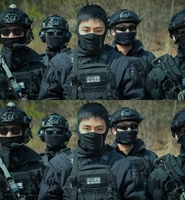 Facebook page unveils photos of BTS member V in counter-terrorism unit gear
Facebook page unveils photos of BTS member V in counter-terrorism unit gear -
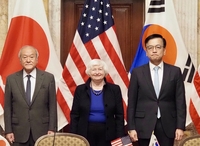 (4th LD) Finance chiefs of S. Korea, U.S., Japan recognize 'serious' concerns over 'sharp' won, yen depreciation
(4th LD) Finance chiefs of S. Korea, U.S., Japan recognize 'serious' concerns over 'sharp' won, yen depreciation -
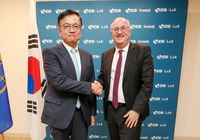 S. Korea to provide US$200 million in humanitarian aid to Ukraine this year
S. Korea to provide US$200 million in humanitarian aid to Ukraine this year -
 Gov't likely to accept university chiefs' request to lower med school enrollment quota
Gov't likely to accept university chiefs' request to lower med school enrollment quota -
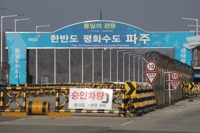 (2nd LD) N. Korea removes street lamps along inter-Korean roads
(2nd LD) N. Korea removes street lamps along inter-Korean roads















